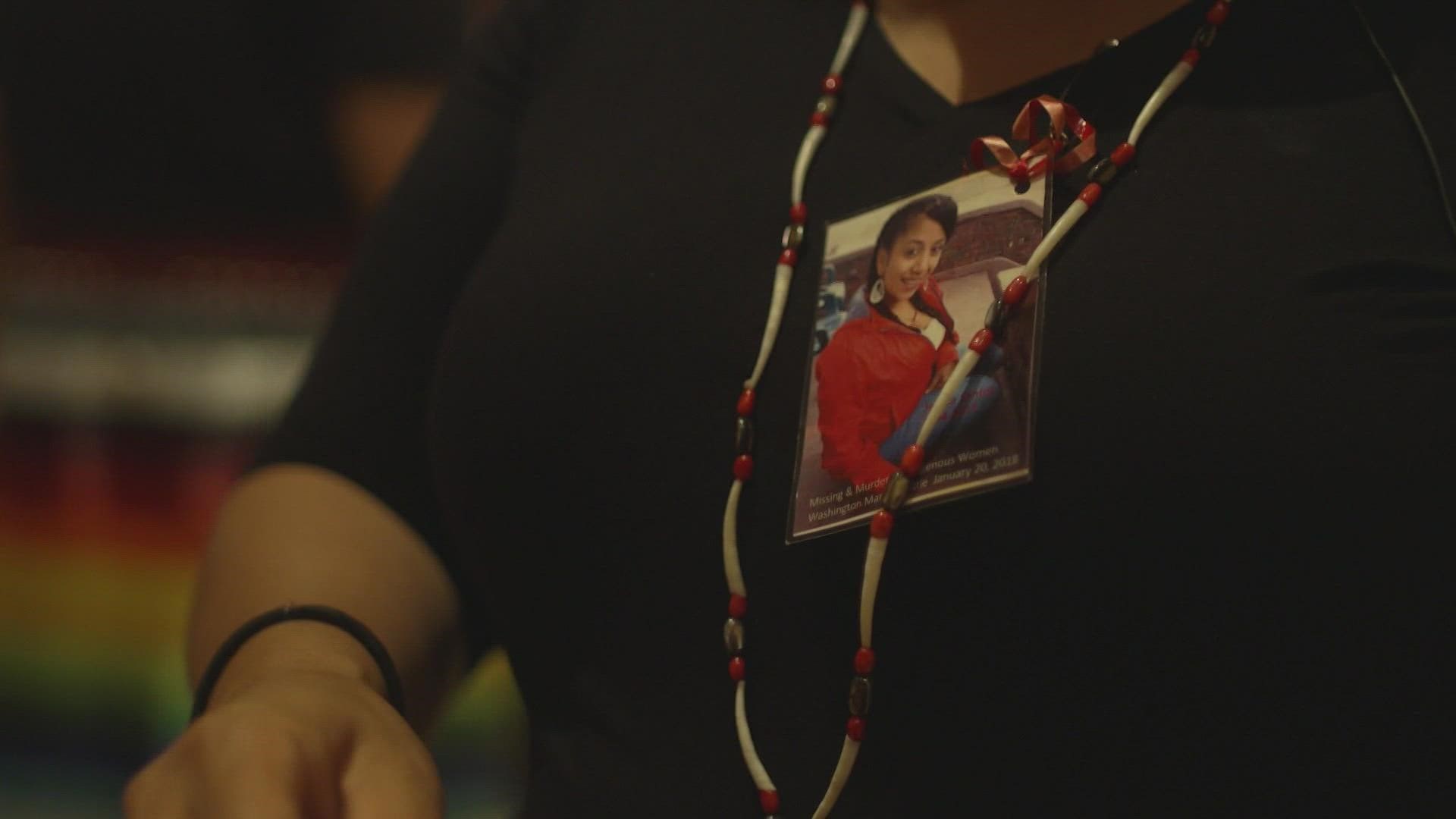SEATTLE — Native Americans are murdered, sexually assaulted and become the victims of violent crime at higher rates than the national average, according to the Bureau of Indian Affairs.
In an effort to combat the crisis of missing and murdered Indigenous people in Washington, a legislative task force has an ambitious plan.
Washington Attorney General Bob Ferguson is asking state leaders for funding to start a cold case unit focusing on unsolved murders of Indigenous people.
According to the latest data available, the city of Seattle leads the nation in the number of murdered and missing Indigenous women and people (MMIWP) cases. Washington has the second highest number of cases of any state in the country.
“We have too many cold cases of missing and murdered Indigenous girls in this state and we need the establishment, within the [Attorney General’s] office, to address these cold cases,” said Abigail Echo-hawk with Washington State MMIWP Task Force. “As a result of the institutional and structural racism in law enforcement, our people were not seeing investigations and our loved ones were dying in silence.”
According to the data presented by the task force, of the 2,268 recorded unsolved homicides in Washington, nearly 5% involve an Indigenous victim. Yet Indigenous people make up less than 2% of the state population.
The Attorney General's office has so far been able to identify 113 unsolved murders involving Indigenous people and they want funding to re-open those cases.
“There's nobody that thinks that's the full scope of the problem. It's likely much larger than that. But we're aware of 113, so we're going to start there,” said Bob Ferguson, Washington State Attorney General. “[We’re] putting those 113 cases in front of the community and the state and saying we need resources to find them or find out what happened to them.”
Families hope for answers
In 2017, the remains of Jessica Santos, 23, were found on the Port Gamble S'Klallam Reservation. Santos was missing for seven days before she was found.
“She was loving and caring, she was funny...just a beautiful all-around young lady,” said Barbara Santos, Jessica’s aunt.
Jessica’s family says they still don’t know who killed her.
“It's still an open case... so it's just frustrating for me,” said Santos.
Recently the MMIWP task force was able to get legislation passed to establish a Missing Indigenous Person Alert system, also known as MIPA. It’s similar to a "Silver Alert' which is primarily used to help locate senior citizens with Alzheimer's disease, dementia, or other mental disabilities. While the MIPA system is something Jessica’s family believes could've helped save her life, they say they are hopeful a cold case unit could help find her killer.
“Just help the families,” said Santos.

